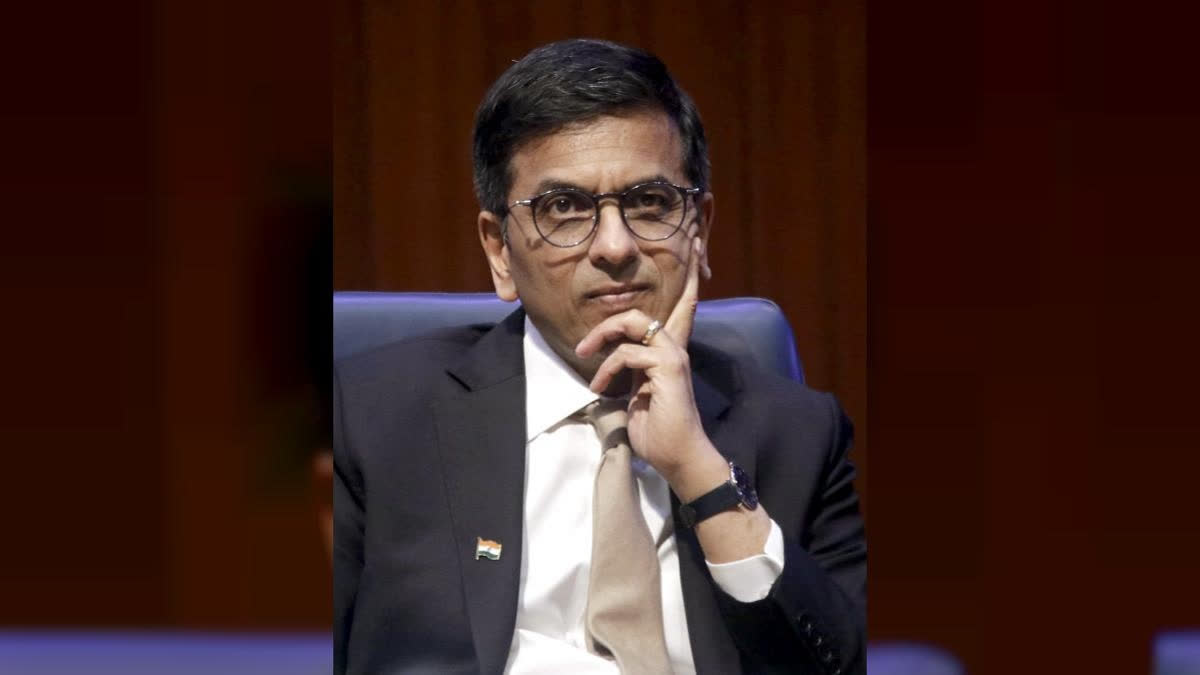New Delhi:The Chief Justice of India D Y Chandrachud on Saturday said the newly enacted criminal laws have transitioned India’s legal framework on criminal justice into a new age and India is set for a "significant overhaul" of its criminal justice system with the implementation of the criminal laws.
Hailing the enactment of the new criminal justice laws as a "watershed moment" for the society, the CJI said much needed improvements have been introduced to protect victim interests and carry out the investigation and prosecution of offences efficiently.
The new laws -- the Bharatiya Nyaya Sanhita, the Bharatiya Nagarik Suraksha Sanhita and the Bharatiya Sakshya Act -- to completely overhaul the country's criminal justice system will come into effect from July 1. However, the provision related to cases of hit-and-run by vehicle drivers would not be implemented immediately.
The CJI said said Bharatiya Nagarik Suraksha Sanhita (BNSS) encompasses a holistic approach to deal with crimes in the digital age. He said the laws must aim to give victims a sense of agency and control in the criminal process as well as a sense of justice. “I expect that with the implementation of the new criminal laws, we will discover loopholes and areas which need to be addressed”, he said.
The CJI said that our laws need to address age-old issues like delays in examination of witnesses, conclusion of trials, overcrowding of prisons, and the issue of undertrial prisoners.
“The BNSS encompasses a holistic approach to deal with crimes in the digital age. It prescribes audio visual recording of search and seizures and the presence of a forensic expert at the crime scene for offences punishable with more than seven years imprisonment”, he said, speaking at a conference in the capital on 'India's Progressive Path in the Administration of Criminal Justice System'.
He said that the audio-visual recording of search and seizures is an important tool for the prosecution as well as for protecting the civil liberties of citizens. The judicial scrutiny would safeguard the rights of citizens against procedural impropriety during search and seizures, added Justice Chandrachud.
However, the CJI stressed that while we make strides in this direction, “we must now confront the challenges of fulfilling the aims of the new criminal legislations”. He said detailed rules need to be formulated on the type of devices to be used for recording, incorporating the principles of natural justice and laying down the consequences of not carrying out such recording.
The CJI said it was therefore very heartening to note that Section 532 of the BNSS allows for all trials, inquiries, and proceedings under the code to be conducted electronically. “As laudable as this addition is, we must continuously introspect and protect the privacy of the accused as well as the victim when dealing with digitisation of proceedings and creating digital evidence. In the digital age, the data and sensitive information of person's has gained paramount importance”, said the CJI.
